HEY BASTARDS.
Every ten years Sight & Sound announces the Top 10 films of all-time. The film magazine polls critics, academics, and professionals and then calculates the results for an ultimate list. Released last month, the list stirred a lot of discussion around the fact that VERTIGO overtook CITIZEN KANE for the top spot. The classy rag also has a second Top 10 list comprised of feedback from directors. It’s a lengthy list, one that deserves careful reading, but we thought we would pull our favorites out to give you a taste of the goods that await. Dig del Toro talking about FRANKENSTEIN, Edgar Wright talking about DUCK SOUP, Tarantino and Scorsese going for 12 picks instead of 10, then hit this link and go to full page of eyeball crack.
ABEL FERRARA
Dir: BAD LIEUTENANT, KING OF NEW YORK
Cul-de-Sac 1966 Roman Polanski
Devils, The 1971 Ken Russell
Hawks and Sparrows 1966 Pier Paolo Pasolini
Prison 1949 Ingmar Bergman
Lolita 1961 Stanley Kubrick
Los Olvidados 1950 Luis Buñuel
Ran 1985 Akira Kurosawa
Touch of Evil 1958 Orson Welles
Woman Under the Influence, A 1974 John Cassavetes
Zero de Conduite 1933 Jean Vigo
Ferrara:
“You can’t make films like the films that made you want to make films,” spoke Godard back when most of these films were made and inspired me to try – but why stop at 10? Add ALL the other films of the above directors to the list, plus ALL of the films of Godard, Hawks, Hitchcock, Bertolucci, Scorsese, Michael Snow, Rossellini, the other films of those above and Nicholas Ray, Milós Forman, Joseph Losey, Buster Keaton, Sam Fuller, Stan Brakhage, Woody Allen, Robert Bresson, Sam Peckinpah, David Lynch and and and…
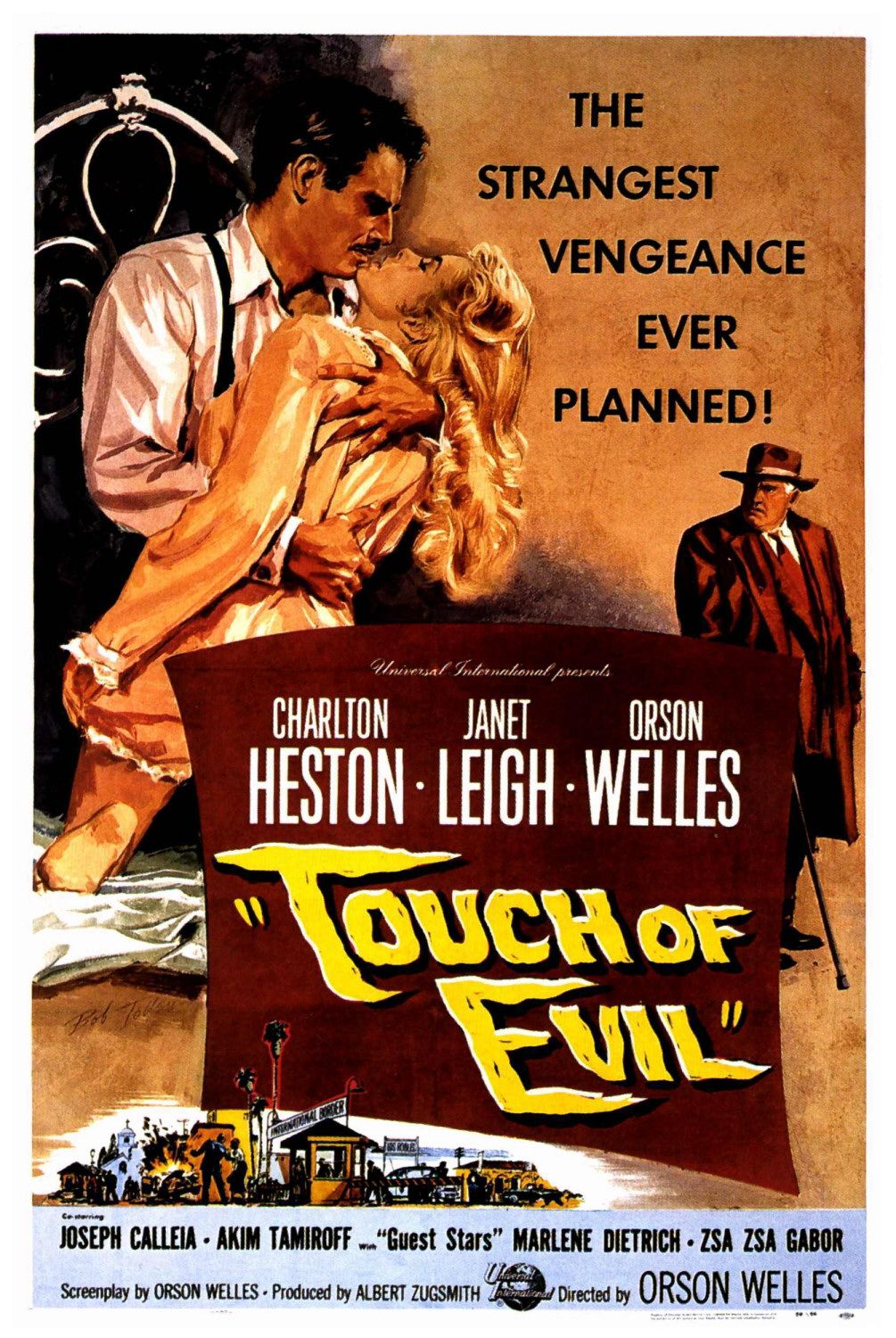
ANDREW DOMINIK
Dir: CHOPPER, THE ASSASSINATION OF JESSE JAMES BY THE COWARD ROBERT FORD
Apocalypse Now 1979 Francis Ford Coppola
Badlands 1973 Terrence Malick
Barry Lyndon 1975 Stanley Kubrick
Blue Velvet 1986 David Lynch
Marnie 1964 Alfred Hitchcock
Mulholland Dr 2003 David Lynch
Night of the Hunter, The 1955 Charles Laughton
Raging Bull 1980 Martin Scorsese
Sunset Blvd. 1950 Billy Wilder
Tenant, The 1976 Roman Polanski
Boong Joon-ho
Dir: THE HOST
City of Sadness, A 1989 Hsiao-hsien Hou
Cure 1998 Kurosawa Kiyoshi
Fargo 1995 Joel & Ethan Coen
Housemaid, The 1960 Kim Ki-young
Psycho 1960 Alfred Hitchcock
Raging Bull 1980 Martin Scorsese
Touch of Evil 1958 Orson Welles
Vengeance is Mine 1979 Imamura Shohei
Wages of Fear, The 1953 Henri-Georges Clouzot
Zodiac 2007 David Fincher
Joon-ho:
“These films have had the biggest impact on my own personal view of cinema.”
David O. Russel
Dir: THREE KINGS, THE FIGHTER
Blue Velvet 1986 David Lynch
Chinatown 1974 Roman Polanski
Discreet Charm of the Bourgeoisie, The 1972 Luis Buñuel
Godfather: Part I, The 1972 Francis Ford Coppola
Goodfellas 1990 Martin Scorsese
It’s a Wonderful Life 1947 Frank Capra
Pulp Fiction 1994 Quentin Tarantino
Raging Bull 1980 Martin Scorsese
Vertigo 1958 Alfred Hitchcock
Young Frankenstein 1974 Mel Brooks
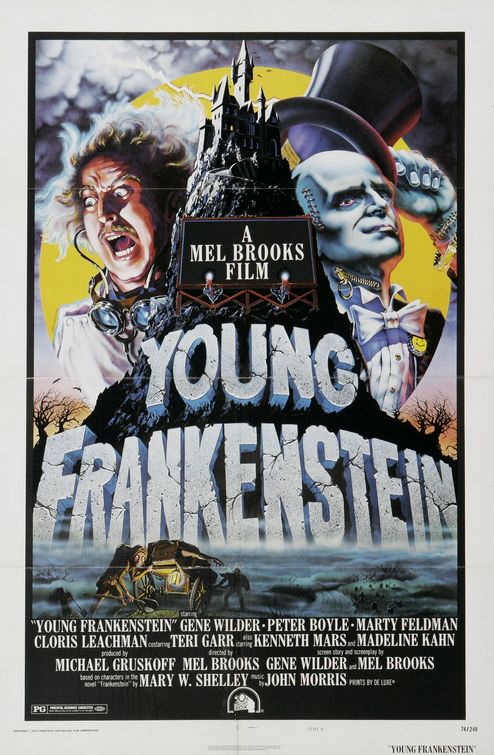
Edgar Wright
Dir: SHAUN OF THE DEAD, SCOTT PILGRIM VS. THE WORLD
2001: A Space Odyssey 1968 Stanley Kubrick
American Werewolf in London, An 1981 John Landis
Carrie 1976 Brian de Palma
Dames 1934 Busby Berkeley
Don’t Look Now 1973 Nicolas Roeg
Duck Soup 1933 Leo McCarey
Psycho 1960 Alfred Hitchcock
Raising Arizona 1987 Joel & Ethan Coen
Taxi Driver 1976 Martin Scorsese
Wild Bunch, The 1969 Sam Peckinpah
Wright:
2001 is the closest I come to a religious experience with cinema. I don’t necessarily believe in God or intelligent design, but I, like Kubrick, want to believe in symmetry. The image of all the planets in our solar system aligning with a black rectangle asks as many questions as it answers – and is all the more glorious for it.
Many films have married two genres, but none get the recipe as right as John Landis’s 1981 passion project An American Werewolf in London. That it not only straddles so many tones, but also nails them all, is sheer alchemy. A postmodern classic that continues to roar.
In Carrie, Brian De Palma takes Stephen King’s horror of adolescence and turns it into a full-blown and full-blooded teenage pop opera. They didn’t need to turn it into a musical. It already was one.
Busby Berkeley lifted the musical into the stratosphere with his oft imitated but never equalled set pieces. By taking dance out of the confines of the proscenium arch, he created sequences that are beyond dazzling in their construction. He’s only responsible for about 30 minutes of Dames, but what a half-hour of geometric heaven it is.
Don’t Look Now is the most affecting and shattering horror film ever made. The brutal beauty of its self-fulfilling prophecy is brilliantly constructed by Nicholas Roeg. Its montage has never been bettered.
Duck Soup is a movie that isn’t just irreverent about politics, war and economic crisis, but seems infectiously flippant about the filmmaking process itself. The Marx Brothers create the anarchic feeling of tearing down the conventions of film as they were still being built.
Whether it’s playing at 109 minutes or 24 hours, Psycho is a work of art. That this gleeful subversion of conventions was both a creative triumph and an enormous box-office hit is quite extraordinary. He may not have won an Oscar, but this film canonised Hitchcock as one of the greatest filmmakers and most evil of puppetmasters.
Raising Arizona is not just structurally perfect, not just brilliantly written, but enormously funny. The Coens took verbose screwball and thick-ear slapstick and married them in high style. Comedy perfection.
A film so vivid, hypnotic and corrosive that it feels forever seared onto your eyeballs, Taxi Driver turns a city, a time and a state of mind into a waking nightmare that’s somehow both horribly real and utterly dreamlike.
The shock of the new erupts in a film about the death of the Old West. The Wild Bunch blurs the traditional black and white hats into an avant-garde explosion of red, with a startling, head-on collision between old values and new cynicism, classic traditions and utter rebellion.
FRANCIS FORD COPPOLA
Dir: APOCALYPSE NOW, THE GODFATHER
Apartment, The 1960 Billy Wilder
Ashes and Diamonds 1958 Andrzej Wajda
Bad Sleep Well, The 1960 Akira Kurosawa
Best Years of Our Lives, The 1946 William Wyler
I Vitelloni 1953 Federico Fellini
King of Comedy, The 1983 Martin Scorsese
Raging Bull 1980 Martin Scorsese
Singin’ in the Rain 1951 Stanley Donen/Gene Kelly
Sunrise 1927 F. W. Murnau
Yojimbo 1961 Akira Kurosawa
GARETH EDWARDS
Dir: MONSTERS
2001: A Space Odyssey 1968 Stanley Kubrick
Apocalypse Now 1979 Francis Ford Coppola
Baraka 1992 Ron Fricke
Graduate, The 1967 Mike Nichols
It’s a Wonderful Life 1947 Frank Capra
Jaws 1975 Steven Spielberg
Reservoir Dogs 1991 Quentin Tarantino
Star Wars 1977 George Lucas
Taxi Driver 1976 Martin Scorsese
Terminator, The 1984 James Cameron

GASPER NOÉ
Dir: ENTER THE VOID
2001: A Space Odyssey 1968 Stanley Kubrick
Amour Michael Haneke
Angst 1983 Gerald Kargl
chien andalou, Un 1928 Luis Buñuel
Eraserhead 1976 David Lynch
I am Cuba 1964 Mikhail Kalatozov
King Kong 1933 Merian C. Cooper/Ernest B. Schoedsack
Salo, or The 120 Days of Sodom 1975 Pier Paolo Pasolini
Scorpio Rising 1964 Kenneth Anger
Taxi Driver 1976 Martin Scorsese
GREG MOTTOLA
Dir: SUPERBAD, PAUL
2001: A Space Odyssey 1968 Stanley Kubrick
400 Blows, The 1959 François Truffaut
dolce vita, La 1960 Federico Fellini
General, The 1926 Buster Keaton
Lady from Shanghai, The 1947 Orson Welles
Manhattan 1979 Woody Allen
Modern Times 1936 Charles Chaplin
Pather Panchali 1955 Satyajit Ray
Persona 1966 Ingmar Bergman
Yojimbo 1961 Akira Kurosawa
GUILLERMO DEL TORO
Dir: PAN’S LABYRINTH, HELLBOY
8½ 1963 Federico Fellini
Belle et la Bete, La 1946 Jean Cocteau
Frankenstein 1931 James Whale
Freaks 1932 Tod Browning
Goodfellas 1990 Martin Scorsese
Greed 1925 Erich von Stroheim
Los Olvidados 1950 Luis Buñuel
Modern Times 1936 Charles Chaplin
Nosferatu 1922 F. W. Murnau
Shadow of A Doubt 1943 Alfred Hitchcock
del Toro:
“Frankenstein is a film – and a tale – that touches the very essence of what I am and all that I believe in. Whale’s superb eye and tonal command are matched by a Karloff performance that manages to transmit both fragility and power.
Full of iconic moments of pure cinema, pulp horror, carny noir, perverse melodrama – Freaks is still unclassifiable after many decades. Still sick, twisted, perverse and profoundly human. Pickled in a jar of bile, it contains Browning’s view of the world at its purest.
Shadow of the Doubt is one of the perfect Hitchcocks – the very first true American Gothic he made, and an eerie portrait of the world of the past being transformed by the touch of evil. As quintessentially American as Edward Hopper or Harper Lee.
An exquisite engraving of human perversity, Greed is a monumental fable that will continue to influence cinema for decades to come. As modern and brutal today as it was the day it was released. A perfect reflection of the anxiety permeating the passage into the 20th century and the absolute dehumanisation that was to come.
Modern Times: ballet, pantomime and absolute command of the cinematic medium. Chaplin manages to entertain and move the audience. In a sense it is the flip side of Murnau’s Sunrise.
La Belle et la Bête is the most perfect cinematic fable ever told. After Méliès, only Cocteau has understood that perfect simplicity is required to tell a fairytale – and that nothing but the power of pure cinema is needed to create awe and wonder.
With Goodfellas Scorsese gives birth to the 21st century in one of the most influential films of the last two decades. A movie that can be rewatched endlessly and remain fresh and surprising. Perfect in every aspect, behind and in front of the camera.
I am certain that my favourite Buñuel is the Mexican period Buñuel and of all his films, Los olvidados and El (1953) shine the brightest. His surreal, anarchist spirit cuts the deepest when used against a conventional genre or a commercial constraint. This example of the golden era of Mexican cinema packs a punch, never flinching in depicting innocence suffocating by rules and concrete buildings. Ruthless Dickens as regurgitated by an atheist.
Nosferatu is a symphony of fear indeed – and a symphony of perfect visual storytelling. The hypnotic nature of the film engrosses the audience into a trance. Along with Dreyer’s Vampyr (1932), it’s one of the two pillars for every vampiric film ever made. Whereas Dreyer concerns himself with the spiritual, Murnau’s film has a tangible, physical component of corruption that makes evil immediate and real.
A true classic has to be both intimate and universal. To speak about cinema through cinema requires a voice unwavering in its passion and purity. 8½ speaks as much about life as it does about art – and it makes certain to connect both. A portrait of the teller and his craft – a lustful, sweaty, gluttonous poem to cinema.”
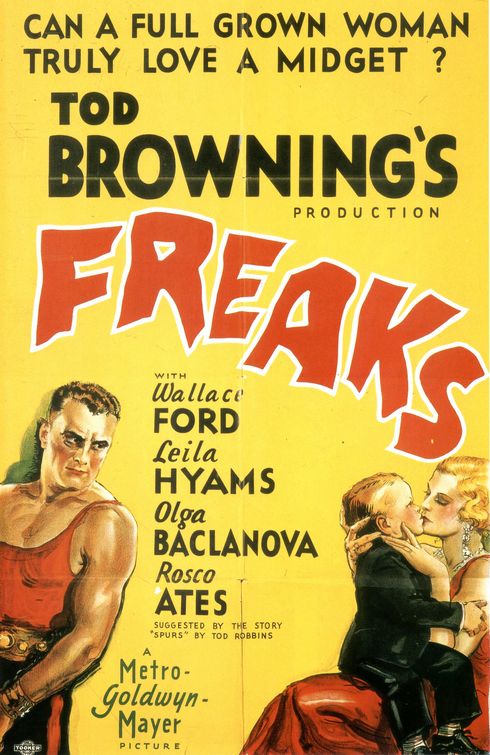
JOE SWANBERG
Dir: V/H/S
Bob & Carol & Ted & Alice 1969 Paul Mazursky
Crumb 1994 Terry Zwigoff
David Holzman’s Diary 1968 Jim McBride
Dillinger Is Dead 1968 Marco Ferreri
Graduate, The 1967 Mike Nichols
Love in the Afternoon 1979 Eric Rohmer
Maman et la putain, La 1973 Jean Eustache
Nashville 1975 Robert Altman
Two Lovers 2008 James Gray
We Won’t Grow Old Together 1972 Maurice Pialat
Swanberg:
“Of course I love Citizen Kane and The Godfather, and Hitchcock and Renoir, but these are the ten films I would take to a desert island. They’ve all made my life better, and continue to inspire me. I’ve limited myself to one film per director, or else Rohmer, Altman and Pialat would have more films on the list. I’m ashamed that there aren’t any women present, but Claire Denis and Catherine Breillat would be on there if I had a few more slots. I also left Stop Making Sense, Gimme Shelter and The Last Waltz off the list, but they’re among my all-time favourites.”
JOHN MCNAUGHTON
Dir: WILD THINGS, HENRY: PORTRAIT OF A SERIAL KILLER
Alphaville 1965 Jean-Luc Godard
Bad Sleep Well, The 1960 Akira Kurosawa
Barry Lyndon 1975 Stanley Kubrick
Blood of a Poet, The 1930 Jean Cocteau
enfants du paradis, Les 1945 Marcel Carné
Magnificent Ambersons, The 1942 Orson Welles
Man Who Shot Liberty Valance, The 1962 John Ford
Raging Bull 1980 Martin Scorsese
Red Shoes, The 1948 Michael Powell/Emeric Pressburger
Vertigo 1958 Alfred Hitchcock
McNaughton:
“This is a personal list of ten films that I love and feel have achieved greatness and belong on the plateau where the greatest films dwell.”
LAWRENCE KASDAN
Dir: BODY HEAT, SILVERADO
Army of Shadows 1969 Jean-Pierre Melville
Battle of Algiers, The 1966 Gillo Pontecorvo
Dr. Strangelove 1963 Stanley Kubrick
Godfather: Part I, The 1972 Francis Ford Coppola
Grapes of Wrath, The 1940 John Ford
Lawrence of Arabia 1962 David Lean
Out of the Past 1947 Jacques Tourneur
Règle du jeu, La 1939 Jean Renoir
Seven Samurai 1954 Akira Kurosawa
Treasure of Sierra Madre, The 1947 John Huston
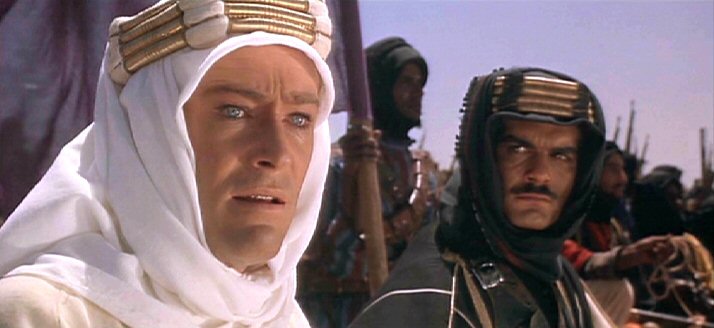
LLOYD KAUFMAN
Dir: TOXIC AVENGER, TROMEO AND JULIET
Art of Vision, The 1964 Stan Brakhage
Big Heat, The 1953 Fritz Lang
Boudu Saved from Drowning 1932 Jean Renoir
Cheyenne Autumn 1964 John Ford
City Lights 1931 Charles Chaplin
General, The 1926 Buster Keaton
Great Dictator, The 1940 Charles Chaplin
Princess Yang Kwei Fei 1955 Mizoguchi Kenji
Rio Bravo 1958 Howard Hawks
Rome Open City 1945 Roberto Rossellini
MARC WEBB
Dir: (500) DAYS OF SUMMER, THE AMAZING SPIDER-MAN
8½ 1963 Federico Fellini
Annie Hall 1977 Woody Allen
Bridge Over the River Kwai David Lean
Children of Men 2006 Alfonso Cuarón
City Lights 1931 Charles Chaplin
Dead Poets Society 1989 Peter Weir
Graduate, The 1967 Mike Nichols
Singin’ in the Rain 1951 Stanley Donen/Gene Kelly
Three Colours: Red 1994 Krzysztof Kieslowski
Year of Living Dangerously, The 1982 Peter Weir
MARK ROMANEK
Dir: ONE HOUR PHOTO, NEVER LET ME GO
8½ 1963 Federico Fellini
Andrei Rublev 1966 Andrei Tarkovsky
Apocalypse Now 1979 Francis Ford Coppola
Barry Lyndon 1975 Stanley Kubrick
Citizen Kane 1941 Orson Welles
Days of Heaven 1978 Terrence Malick
Fanny and Alexander 1984 Ingmar Bergman
Godfather: Part II, The 1974 Francis Ford Coppola
Heaven’s Gate 1980 Michael Cimino
Lawrence of Arabia 1962 David Lean

MARTIN SCORSESE
Dir: MEAN STREETS, GOODFELLAS
2001: A Space Odyssey 1968 Stanley Kubrick
8½ 1963 Federico Fellini
Ashes and Diamonds 1958 Andrzej Wajda
Citizen Kane 1941 Orson Welles
Leopard, The 1963 Luchino Visconti
Paisà 1946 Roberto Rossellini
Red Shoes, The 1948 Michael Powell/Emeric Pressburger
River, The 1951 Jean Renoir
Salvatore Giuliano 1962 Francesco Rosi
Searchers, The 1956 John Ford
Ugetsu Monogatari 1953 Mizoguchi Kenji
Vertigo 1958 Alfred Hitchcock
MATTHEW VAUGHN
Dir: KICK-ASS, LAYER CAKE
Back to the Future 1985 Robert Zemeckis
Being There 1979 Hal Ashby
Deer Hunter, The 1977 Michael Cimino
Good, the Bad and the Ugly, The 1966 Sergio Leone
Lawrence of Arabia 1962 David Lean
Raiders of the Lost Ark 1981 Steven Spielberg
Reservoir Dogs 1991 Quentin Tarantino
Rocky III 1982 Sylvester Stallone
Scarface 1983 Brian De Palma
Star Wars 1977 George Lucas
MICHAEL APTED
Dir: THE WORLD IS NOT ENOUGH, THUNDERHEART
2001: A Space Odyssey 1968 Stanley Kubrick
8½ 1963 Federico Fellini
Battle of Algiers, The 1966 Gillo Pontecorvo
Breathless 1960 Jean-Luc Godard
Citizen Kane 1941 Orson Welles
Hustler, The 1961 Robert Rossen
Kes 1969 Ken Loach
Night and Fog 1955 Alain Resnais
Seventh Seal, The 1957 Ingmar Bergman
Some Like It Hot 1959 Billy Wilder
Apted:
“I wanted to cover different genres. My list reflects films that I considered groundbreaking and that had a powerful influence on my own work. Number 11 would be: Nashville (Robert Altman).”
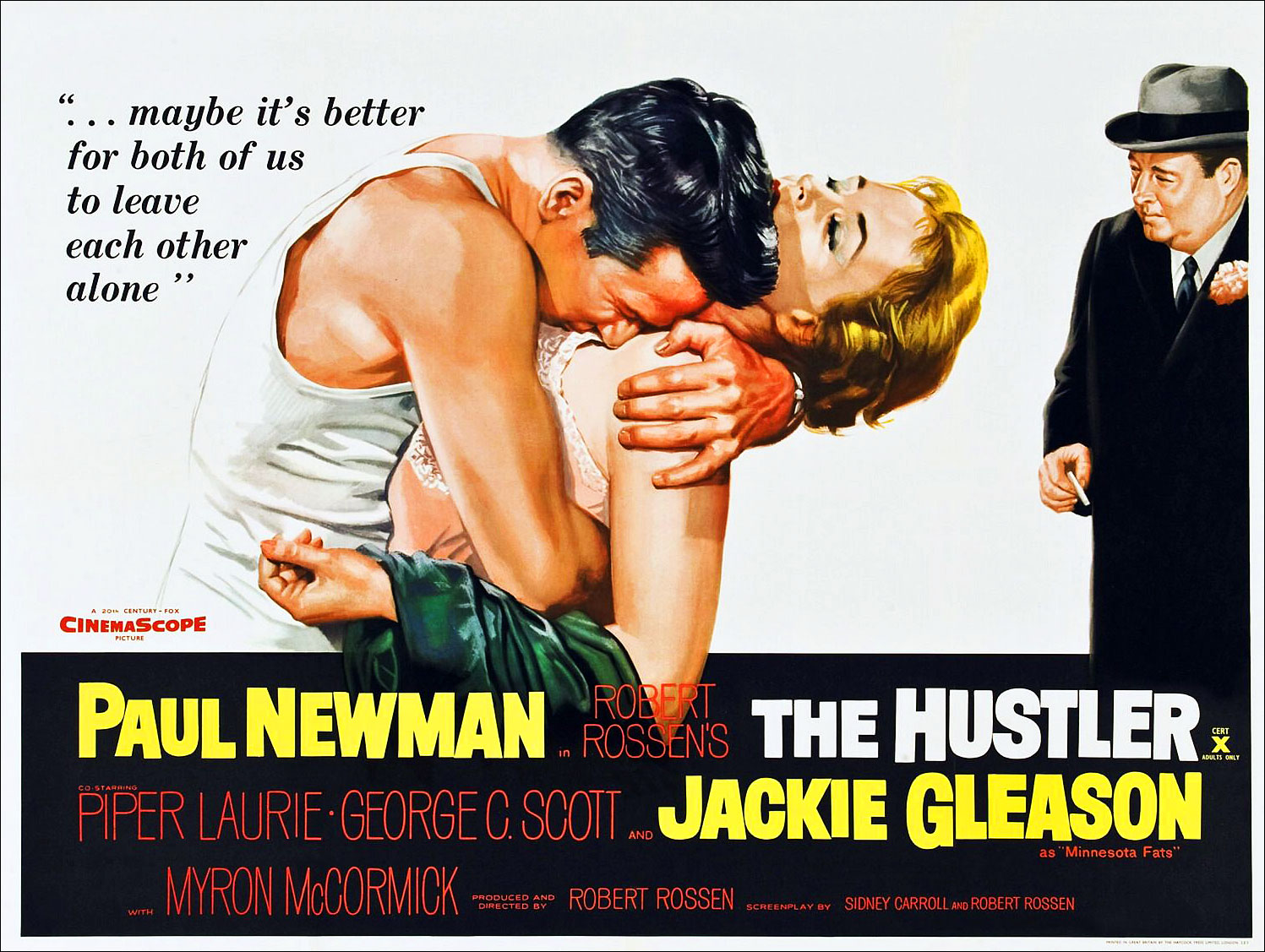
MICHAEL MANN
Dir: THIEF, HEAT
Apocalypse Now 1979 Francis Ford Coppola
Avatar 2009 James Cameron
Battleship Potemkin 1925 Sergei M Eisenstein
Biutiful 2009 Alejandro González Iñárritu
Citizen Kane 1941 Orson Welles
Dr. Strangelove 1963 Stanley Kubrick
Darling Clementine, My 1946 John Ford
Passion of Joan of Arc 1927 Carl Theodor Dreyer
Raging Bull 1980 Martin Scorsese
Wild Bunch, The 1969 Sam Peckinpah
Mann:
“Coppola evoked the high-voltage, dark identity quest, journeying into overload; the wildness and nihilism – all captured in operatic and concrete narrative, with the highest degree of difficulty. A masterpiece.
With Battleship Potemkin, Eisenstein not only laid the theoretical foundation for much of 20th-century cinematic narrative in 1924, but made one of cinema’s great classics, applying dialectics to the collision of antithetical compositional elements and meaning. Its influence in British, Weimar and American cinema is huge.
Citizen Kane was a watershed: a life’s linear history reassembled into a novelistic narrative by investigators querying its meaning. And done with Wellesian brio, to a grand scale.
Upon the foundation of an entirely invented biosystem, Avatar is a brilliant synthesis of mythic tropes, with debts to Lévi-Strauss and Frazier’s The Golden Bough. It soars because, simply, it stones and transports you.
The whole of Dr. Strangelove is a high-energy third act. On American Cold War policy and political-military culture, it is devastatingly more effective through hilarious ridicule than are any number of cautionary fables.
The profound struggle through the lower depths of Barcelona street life of a human soul, Biutiful is resplendent with grace, pathos and love. Pure poetry.
My Darling Clementine is possibly the finest drama in the western genre, with a stunningly subjective Wyatt Earp (Henry Fonda). It achieves near-perfection cinematically in many of its passages via its blocking, shooting and editing.
Human experience conveyed purely from the visualisation of the human face: no one else has composed and realised human beings quite like Dreyer in The Passion of Joan of Arc.
Raging Bull immerses us into the failing and besotted life of LaMotta and his need for and pursuit of redemption. The humanity of the picture is extraordinary, as is Marty’s execution.
The Wild Bunch: no other picture captures the poignancy of ‘the last of’, a fin de siècle sense of the west, of ageing, of the pathos of twilight.
And at number 11: Nakashima Tetsuya’s 2010 Confessions – a Japanese masterpiece. Frighteningly, formally rigidly controlled, it’s unheralded high art.”
MIKE FIGGIS
Dir: LEAVING LAS VEGAS, TIMECODE
Bonnie and Clyde 1967 Arthur Penn
Deliverance 1972 John Boorman
dolce vita, La 1960 Federico Fellini
Festen 1998 Thomas Vinterberg
I Am Curious Yellow 1967 Vilgot Sjöman
Obscure Object of Desire, That 1977 Luis Buñuel
Opening Night 1977 John Cassavetes
Persona 1966 Ingmar Bergman
Week End 1967 Jean-Luc Godard
Woman Next Door, The 1981 François Truffaut
Figgis:
“I am very aware that I have seen very few films compared to many people that I know – the list hasn’t changed very much in the last years, but most of these films I have revisited fairly recently. I was curious to see how my taste had perhaps altered and, more importantly, to see how they had weathered with time. I found them more powerful than before. They have all played a big influence on what I have attempted to do myself, so in that sense I would query the title ‘greatest films of all time’ – there is no such thing, and filmmaking is not a competition. But most of these films have also had a tremendous impact on filmmaking in general.”
MIKE HODGES
Dir: GET CARTER, FLASH GORDON
Ace in the Hole 1951 Billy Wilder
Asphalt Jungle, The 1950 John Huston
Bad Sleep Well, The 1960 Akira Kurosawa
Charley Varrick 1973 Don Siegel
In a Lonely Place 1950 Nicholas Ray
Killing, The 1956 Stanley Kubrick
Kiss Me Deadly 1955 Robert Aldrich
Prowler, The 1950 Joseph Losey
Samouraï, Le 1967 Jean-Pierre Melville
Sweet Smell of Success 1957 Alexander Mackendrick
Hodges:
“I’ve always admired the cinema of subversion; films that entertain while applying the scalpel to the cancer hidden within the social order. There are just some of the great ones that come to mind. Nowadays, of course, there’s little need for the scalpel as rampant greed and corruption are there for all to see.”
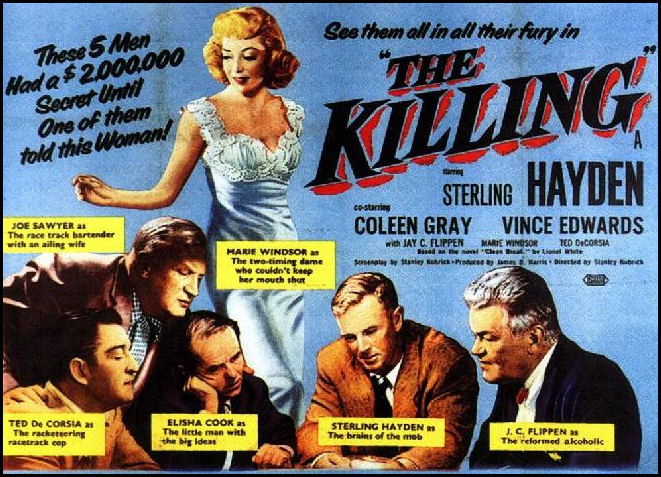
MIKE NEWELL
Dir: DONNIE BRASCO
Andrei Rublev 1966 Andrei Tarkovsky
Closely Observed Trains 1966 Ji?í Menzel
Goodfellas 1990 Martin Scorsese
grande illusion, La 1937 Jean Renoir
Leopard, The 1963 Luchino Visconti
Manchurian Candidate, The 1962 John Frankenheimer
Seven Samurai 1954 Akira Kurosawa
strada, La 1954 Federico Fellini
Strangers on a Train 1951 Alfred Hitchcock
White Ribbon, The 2009 Michael Haneke
Newell:
“Each film made me question in some way what I had previously thought were the immutable rules of making movies and what their subjects could be.”
PAUL SCHRADER
Dir: BLUE COLLAR, HARDCORE
Citizen Kane 1941 Orson Welles
Conformist, The 1970 Bernardo Bertolucci
In The Mood For Love 2000 Wong Kar Wai
Lady Eve, The 1941 Preston Sturges
Orphée 1950 Jean Cocteau
Pickpocket 1959 Robert Bresson
Règle du jeu, La 1939 Jean Renoir
Tokyo Story 1953 Ozu Yasujirô
Vertigo 1958 Alfred Hitchcock
Wild Bunch, The 1969 Sam Peckinpah
QUENTIN TARANTINO
Dir: PULP FICTION, JACKIE BROWN
Apocalypse Now 1979 Francis Ford Coppola
Bad News Bears, The 1976 Michael Ritchie
Carrie 1976 Brian de Palma
Dazed and Confused 1993 Richard Linklater
Good, the Bad and the Ugly, The 1966 Sergio Leone
Great Escape, The 1963 John Sturges
His Girl Friday 1939 Howard Hawks
Jaws 1975 Steven Spielberg
Pretty Maids All in a Row 1971 Roger Vadim
Rolling Thunder 1997 John Flynn
Sorcerer 1977 William Friedkin
Taxi Driver 1976 Martin Scorsese
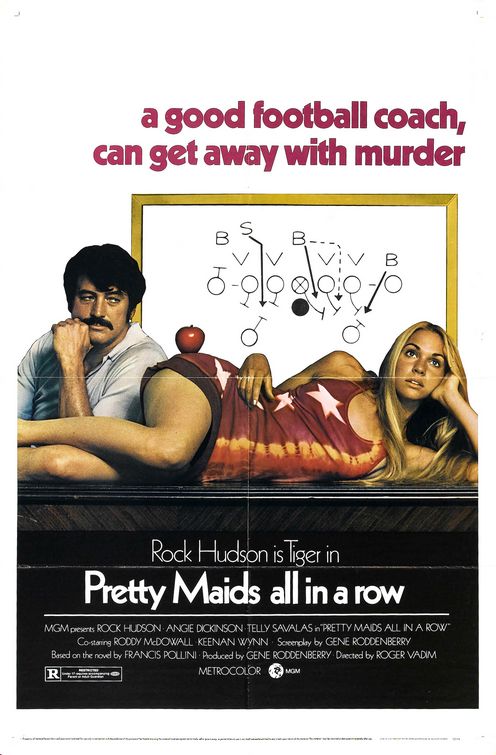
STEVE MCQUEEN
Dir: SHAME, HUNGER
Battle of Algiers, The 1966 Gillo Pontecorvo
Beau Travail 1998 Claire Denis
Couch (series) 1966 Andy Warhol
Do The Right Thing 1989 Spike Lee
mépris, Le 1963 Jean-Luc Godard
Once Upon a Time in America 1983 Sergio Leone
Règle du jeu, La 1939 Jean Renoir
Tokyo Story 1953 Ozu Yasujirô
Wages of Fear, The 1953 Henri-Georges Clouzot
Zero de Conduite 1933 Jean Vigo
TERRY JONES
Dir: MONTY PYTHON AND THE HOLY GRAIL, LIFE OF BRIAN
Crimes and Misdemeanors 1989 Woody Allen
E.T. 1982 Steven Spielberg
Fanny and Alexander 1984 Ingmar Bergman
Festen 1998 Thomas Vinterberg
General, The 1926 Buster Keaton
Groundhog Day 1993 Harold Ramis
Guys and Dolls 1955 Joseph L. Mankiewicz
I’m No Angel 1933 Wesley Ruggles
Snow White and the Seven Dwarfs 1937 David Hand et al
Toy Story 3 2010 Lee Unkrich
Jones:
“Fanny & Alexander wonderfully encapsulated the history of the baleful effect of Christianity on paganism. Plus the first hour’s wonderful evocation of the child’s perfect Christmas.
In I’m No Angel: Mae West takes on the battle of the sexes: she pillories the way men hold one set of values for men and another for women. Brilliant courtroom scene at end when she faces her accusers.
The General is one of the best-made comedies ever – quite beautiful to behold.
Crimes and Misdemeanours: Woody Allen is one of the greatest directors in cinema history. This film applies comedy to crime and tragedy to comedy until the end scene when you realise which was which.
It’s wonderful how Toy Story smuggled a political comment into the third story of the franchise. Brilliant.
As a film about friendship in 1982 during the Reagan gung-ho years, I think E.T. is very political.
Groundhog Day: amazing to make a film that keeps repeating itself and yet works.
By the end of Festen you have totally reversed your opinion of all the characters.
Snow White & The Seven Dwarves (Disney): classic, archetypal, full of wonder.
Guys & Dolls is simply the best musical ever.”
SEE YOU ON FORTY DEUCE,
G
SOURCE: BFI
- [THE BIG QUESTION] WHAT’S YOUR FAVORITE FEMALE ENSEMBLE IN MOVIES? - July 22, 2016
- [IN THEATERS NOW] THE BOY (2016) - January 24, 2016
- Cult Movie Mania Releases Lucio Fulci Limited Edition VHS Sets - January 5, 2016

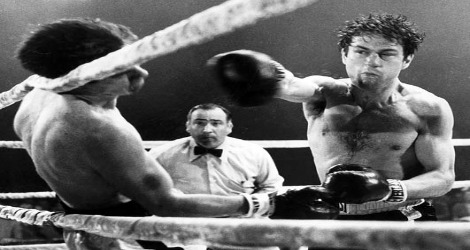




No Comments